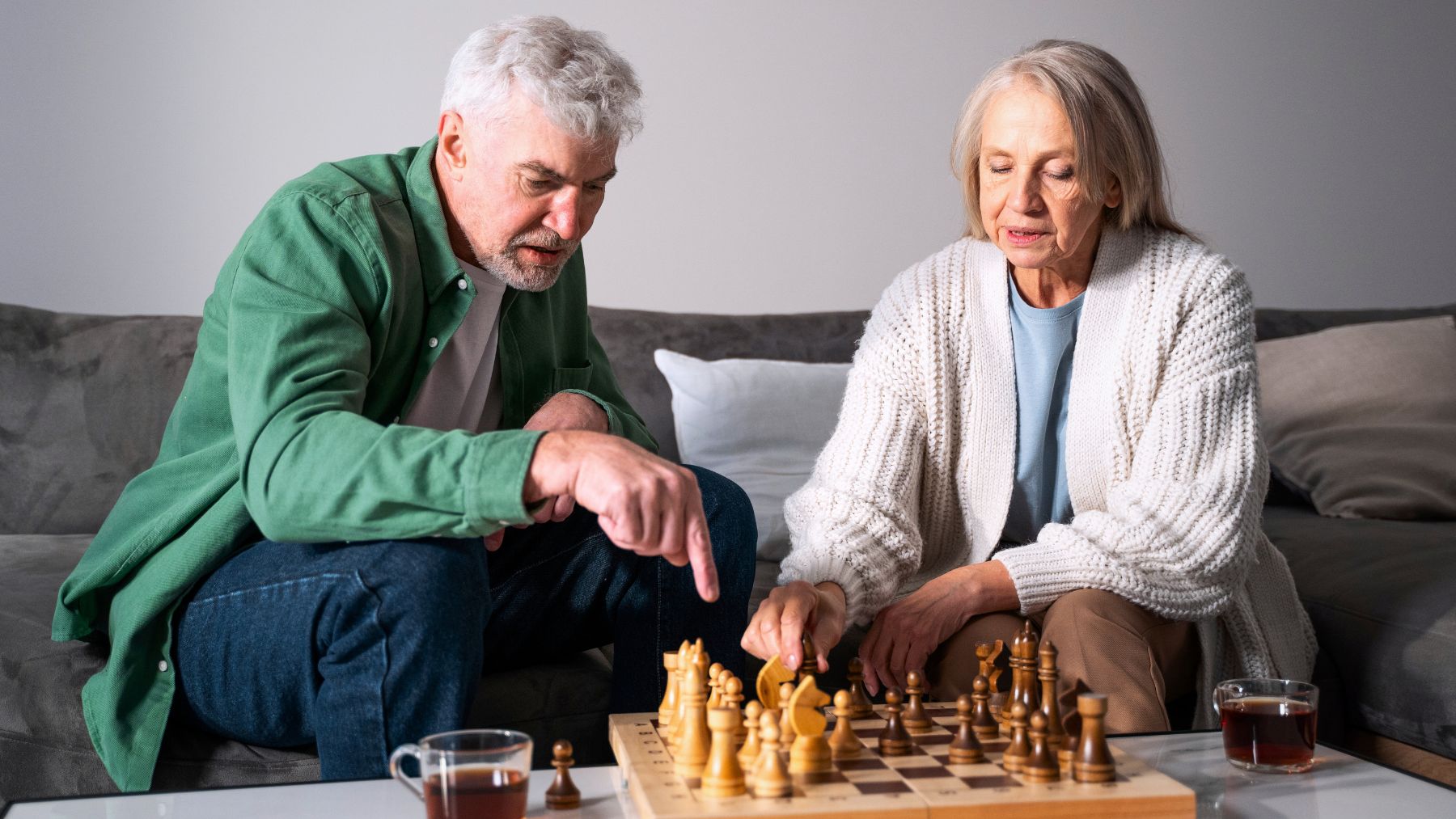Keeping the mind sharp after 70 doesn’t always require apps or puzzles on a screen. Sometimes the best mental workout comes in the form of a simple card game played at the table with friends or family. Indeed, gaming may slow cognitive decline by as much as 40% in people over 70, according to experts.
One of the most effective examples is Dobble, a fast-paced observation game that has become popular with players of all ages. While it’s often seen in classrooms or among kids, its mechanics are especially valuable for older adults who want to challenge their memory, strengthen concentration, and enjoy meaningful social interaction. Let’s explore how it works and why it can be helpful for cognitive health in later years.
How to play Dobble
Dobble consists of a deck of round cards, each covered with colorful symbols. No two cards are the same, yet any two cards always share exactly one symbol. The challenge is to spot that matching image faster than your opponent.
Each round, players flip over a card and immediately scan both images. The first person to identify the common symbol and call it out takes the win for that turn. Depending on the variation, they may keep the card, pass it, or place it in the center pile. The goal across all versions is the same: act quickly, recognize the match, and avoid hesitation.
The game has multiple ways to play, which keeps it fresh. Some rounds focus on collecting the most cards, while others push players to get rid of theirs. Because the cards are highly visual and the rules stay simple, Dobble can be picked up in minutes. What makes it challenging is the pace, as symbols can be similar, and the pressure of racing against others keeps attention levels high.
How this game benefits seniors over 70
While Dobble is a lighthearted game, the skills it trains are directly tied to areas of cognitive health that tend to decline with age. That makes it ideal for supporting memory and attention in older adults. It contributes to:
- Visual discrimination: The game requires noticing fine differences in shapes and colors, which can improve pattern recognition and support visual processing.
- Memory recall: Remembering and recognizing recurring symbols helps reinforce short-term memory, a key area that often weakens with age.
- Sustained concentration: Scanning the cards and ignoring distractions strengthens the ability to focus, which supports daily tasks like reading or following conversations.
- Processing speed: Since success depends on quick responses, it encourages faster thinking and decision-making under light pressure.
- Social connection: Playing with others promotes communication, laughter, and a sense of belonging, which are linked to lower rates of cognitive decline.
- Emotional regulation: The competitive element teaches patience and resilience, helping players handle both winning and losing with balance.
For seniors over 70, Dobble is an accessible way to stay mentally active. It doesn’t demand technology, long explanations, or heavy preparation. Instead, it provides an engaging setting where memory, concentration, and processing speed get consistent exercise. Adding games like this one as part of your regular activities can help keep the brain flexible while also encouraging social interaction.

